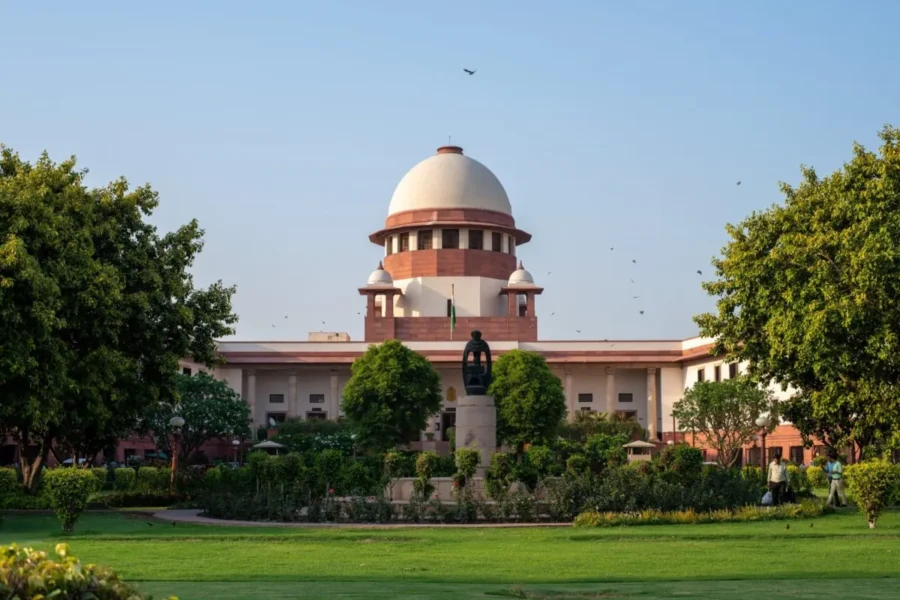Introduction
Welcome to the official blog of the Law Offices of Kr. Vivek Tanwar Advocate and Associates, where we are dedicated to providing litigation support services for matters related to the Right To Education. In today’s blog post, we aim to shed light on the prevailing issues surrounding the Right To Education, the legal framework in place for their protection, and the steps we can take as a society to combat these acts. Join us as we explore this critical subject and empower you with the knowledge to protect your rights and safety.
In a recent development, the Supreme Court, on September 15, 2023, issued notices to the Union Government and all State Governments regarding the interpretation of Section 2(d) of the Right to Education Act, 2009. This section defines the expression “child belonging to disadvantaged groups,” and the question before the court is whether it can be extended to include orphaned children. Notably, schools are obligated to provide at least a 25% quota for ‘Children belonging to disadvantaged groups’ as per Section 12 of the Act. The court also sought instructions on whether benefits provided under the PM Cares Fund to children orphaned during the COVID-19 pandemic could be extended to other orphans as well.
Case Laws: Supreme Court’s Key Observations and Directions in the Poulomi Pavini Shukla v. Union of India Case
In a recent development, the Supreme Court of India, in the case of Poulomi Pavini Shukla v. Union of India and Others, has taken cognizance of crucial matters related to the Right to Education Act, 2009, and benefits provided to orphaned children, particularly in the context of the COVID-19 pandemic. Here are the key points and directions issued by the court in this significant case:
1. Defining “Child Belonging to Disadvantaged Groups”:
- The court has raised the question of whether Section 2(d) of the Right to Education Act, 2009, which defines the expression “child belonging to disadvantaged groups,” should also encompass orphaned children.
- Schools are mandated to allocate a minimum of 25% quota for children from disadvantaged groups under Section 12 of the Act.
2. Extending PM Cares Fund Benefits:
- The court has sought instructions from the government regarding the extension of benefits provided under the PM Cares Fund to children orphaned during the COVID-19 pandemic to other orphaned children as well.
3. Bench Composition and Future Listing:
- The matter was presented before a bench comprising Chief Justice of India DY Chandrachud, Justice JB Pardiwala, and Justice Manoj Misra.
- The case is set to be listed again after a period of four weeks.
4. Request for Adjournment and Petitioner’s Demands:
- At the outset, the Union Government requested an adjournment, with Additional Solicitor General Vikramjit Banerjee explaining that he had recently taken over the case and needed more time to respond.
- The CJI pointed out that the matter had been ongoing since 2018 due to repeated adjournments.
- Advocate Prashant Bhushan, representing the petitioner, presented two key demands during the hearing:
- Extending benefits provided to children orphaned during the COVID-19 pandemic under the PM-Cares Fund to all orphaned children.
- Extending the benefits given to economically weaker sections (EWS) under the Right to Education Act, specifically the 20% reservation for EWS category children in private schools, to all orphaned children.
5. CJI’s Emphasis on Equality:
- Chief Justice DY Chandrachud stressed the importance of equality among orphans, regardless of the circumstances of their parents’ death.
- He highlighted that an orphan remains an orphan, whether their parents passed away due to an accident or an illness.
6. Request for Uniform Implementation:
- The petitioner argued that the Right to Education Act empowers states to notify additional children eligible for benefits.
- The states of Gujarat and Delhi had done so through a government order (GO) in 2013 and 2015, respectively.
- The petitioner urged the court to direct other states to issue similar GOs for the benefit of orphaned children, simplifying the process.
- The CJI took note of this and emphasized that the government needed to consider extending the benefits of schemes intended for children orphaned during the COVID-19 pandemic to all orphaned children.
7. Directive to Define “Child Belonging to Disadvantaged Groups”:
- The court instructed the Union of India to consider the petitioner’s plea for the appropriate governments to define the expression “child belonging to disadvantaged groups” under Section 2(d) of the RTE Act to include orphaned children, particularly those facing social and educational disadvantages.
- The court has called upon all state governments to submit their affidavits on this aspect.
Conclusion
This case highlights the Supreme Court’s proactive stance on ensuring equal educational opportunities and benefits for orphaned children, irrespective of their background or the circumstances leading to their orphanhood. It underscores the court’s commitment to addressing crucial issues related to education and social justice.
We are a law firm in the name and style of Law Offices of Kr. Vivek Tanwar Advocate and Associates at Gurugram and Rewari. We are providing litigation support services for matters related to the RTE Act (Right To Education).

